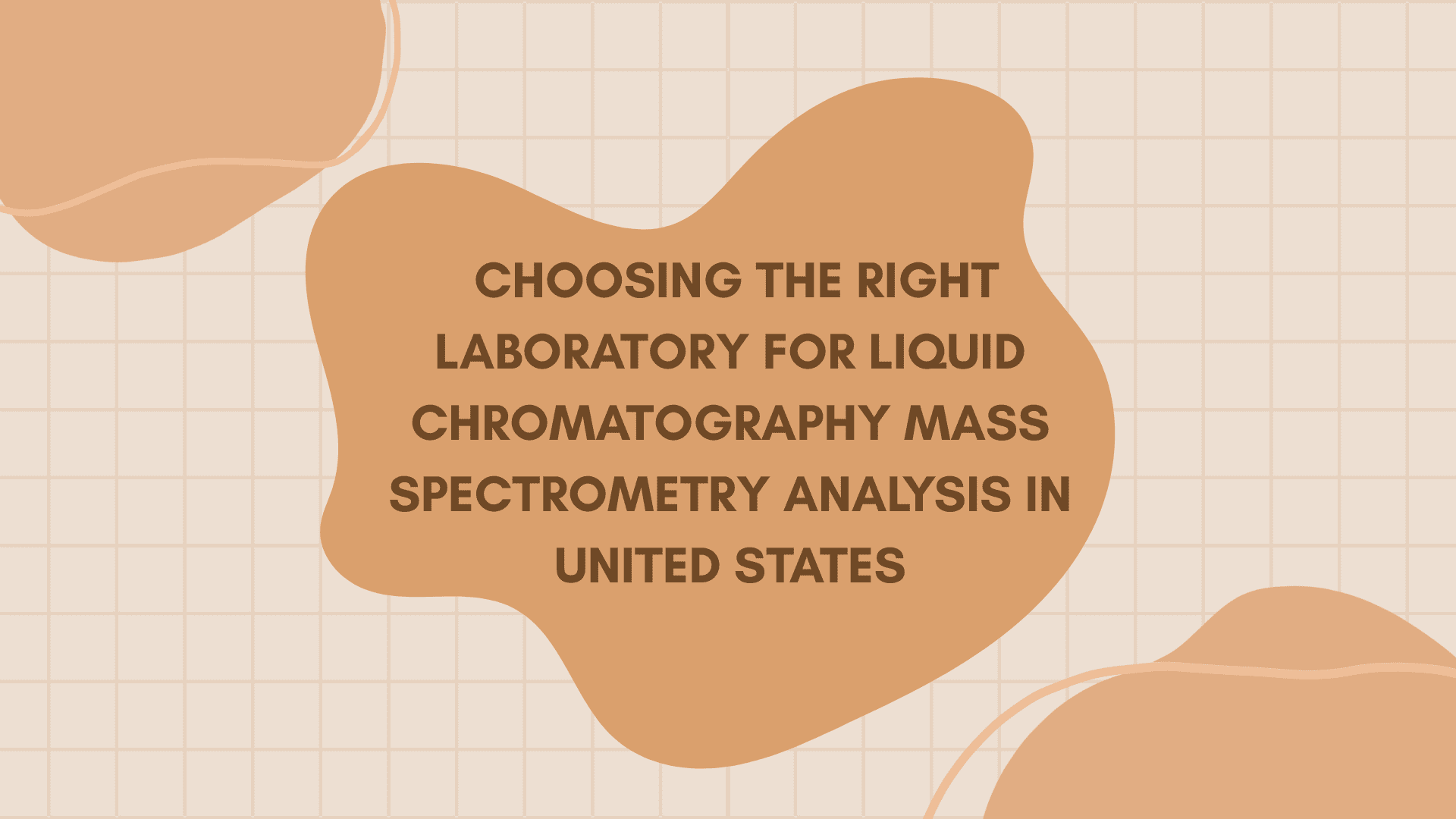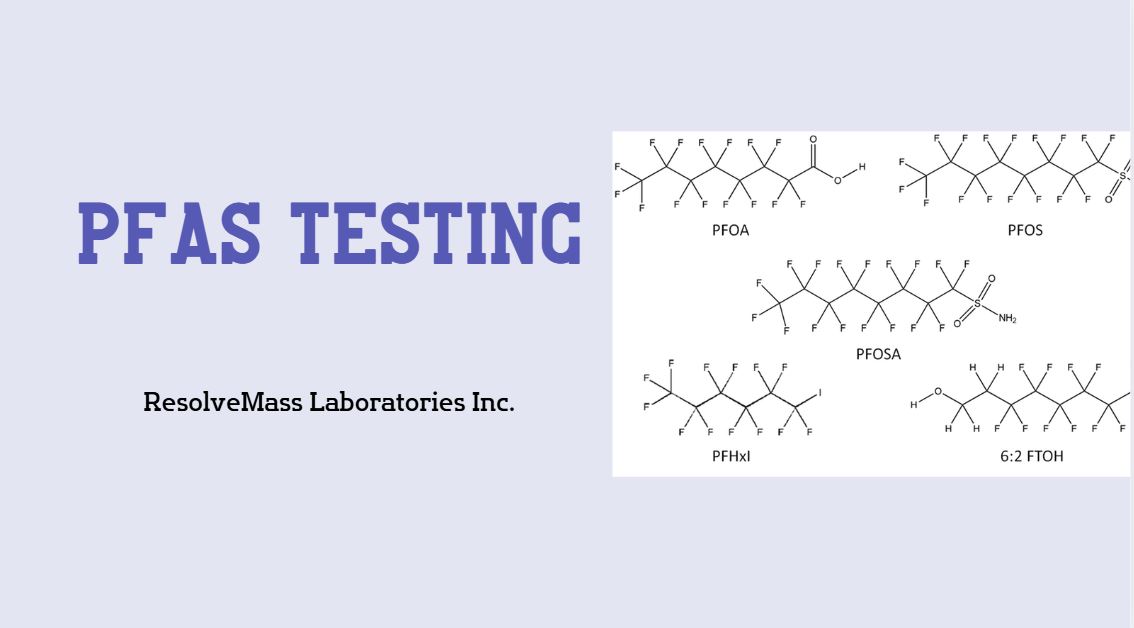Liquid Chromatography Mass Spectrometry (LCMS) is one of the most reliable technologies for detecting, measuring, and identifying complex compounds across multiple industries. Today, LCMS Analysis in United States plays a vital role in pharmaceuticals, biotechnology, environmental studies, and food safety. Selecting the right laboratory partner is not only about accuracy of data but also about ensuring compliance, reliability, and trust. At ResolveMass Laboratories Inc., we are committed to providing highly precise LCMS testing services that meet the highest scientific and regulatory standards.
🔍 Quick Summary of This Guide
LCMS Analysis in United States allows scientists and companies to accurately identify LCMS analysis in United States ensures accurate detection of complex compounds across pharmaceuticals, biotech, food safety, and environmental sectors.
The right laboratory should provide regulatory compliance, advanced instrumentation, experienced staff, and tailored solutions.
Choosing ResolveMass Laboratories Inc. ensures:
- Cutting-edge technology and validated methods
- Expertise in impurity profiling, residual solvent testing, and peptide characterization
- Compliance with FDA, EPA, and international guidelines
- Transparent reporting and trusted partnerships
Key services include residual solvent testing, impurity profiling, and peptide sequencing.
This guide covers what to look for in a lab, a comparison checklist, and answers to the 10 most common FAQs about LCMS analysis in United States.
Why LCMS Analysis in United States is Critical for Science and Industry
LCMS technology offers unmatched sensitivity and accuracy for detecting and quantifying compounds, even at extremely low concentrations. It is widely applied in pharmaceuticals, environmental testing, food safety assurance, and advanced biological research. Unlike older methods, LCMS provides detailed results that make it possible to identify impurities, metabolites, and toxic substances with precision.
In the pharmaceutical field, LCMS is key to bioanalysis, stability testing, and regulatory submissions. Environmental agencies use it to monitor pollutants and harmful contaminants such as PFAS and nitrosamines. Choosing the right LCMS laboratory is therefore crucial. Poor-quality data can result in regulatory delays, rejected applications, or even costly recalls. Trusted laboratories follow validated workflows and international guidelines to protect clients from these risks.
Factors to Consider When Selecting a Laboratory for LCMS Analysis in United States
1. Advanced Technology and Instrumentation
A dependable LCMS laboratory must use high-performance systems capable of detecting trace-level substances with accuracy and speed. Cutting-edge equipment increases detection sensitivity, reduces errors, and ensures consistent results across different sample types.
At ResolveMass Laboratories, our facilities feature advanced LCMS platforms and validated processes for deformulation studies, direct infusion tests, and biomarker quantification. This investment in modern technology guarantees reliable outcomes for pharmaceutical, biotech, and environmental projects.
2. Skilled Scientists and Technical Expertise
Even the most powerful instruments require experienced scientists to interpret the data. LCMS results can be complex, and accurate interpretation ensures that findings are both actionable and compliant. A skilled team helps prevent errors, designs customized methods, and resolves technical challenges efficiently.
ResolveMass employs highly trained chemists and mass spectrometry specialists with experience. Their deep knowledge allows us to tailor testing strategies for unique samples, from peptides to small-molecule impurities. This expertise ensures clients receive accurate data and timely project completion.
3. Strict Compliance and Accreditation
Since LCMS results are often reviewed by regulatory agencies, compliance with GLP, GMP, and ISO standards is non-negotiable. Accredited laboratories maintain rigorous documentation, validated methods, and strict quality control to ensure trustworthy results.
At ResolveMass, every study is conducted under auditable conditions that meet U.S. and international requirements. This approach reduces risks of rejection by agencies such as the FDA and EPA, while also building long-term confidence in our reported data.
4. Comprehensive LCMS Services
An ideal LCMS lab should offer a broad range of services under one roof to save time and streamline projects. Beyond general testing, specialized services such as nitrosamine analysis, PFAS detection, peptide characterization, and impurity profiling are often essential.
ResolveMass provides all these services in-house, ensuring that clients do not need to outsource different types of testing to multiple providers. This comprehensive portfolio allows organizations to consolidate compliance, research, and development needs in one place.
5. Transparency and Reliable Partnerships
Trust in laboratory results comes from transparent communication, clear documentation, and consistent reliability. A dependable lab shares detailed reports, explains the methods used, and remains available for technical discussions.
At ResolveMass, transparency is central to our work. We provide complete traceability, frequent project updates, and clear reporting that clients can submit directly to regulators. This commitment strengthens long-term partnerships and fosters scientific confidence.
Comparison Checklist: Choosing the Best LCMS Lab in United States
| Factor | Why It Matters | ResolveMass Advantage |
|---|---|---|
| Technology | Ensures sensitivity and accuracy | Advanced LCMS systems |
| Experience | Accurate interpretation of data | Extensive expertise |
| Services | Covers multiple regulatory needs | Wide range of solutions |
| Compliance | Required for FDA/EPA acceptance | Full GMP/GLP adherence |
| Trust | Builds reliable long-term partnerships | Transparent reporting |
Specialized LCMS Services at ResolveMass Laboratories
At ResolveMass, we deliver a complete portfolio of LCMS Analysis in United States, including:
- Residual Solvent Testing – ensures drug safety and compliance with global standards.
- Impurity Profiling – identifies trace contaminants that may affect product performance.
- Deformulation Studies – reverse engineering of complex formulations.
- Direct Infusion Testing – fast and reliable analysis for urgent needs.
- Nitrosamine Detection – testing for harmful impurities under new FDA guidance.
- Biomarker Quantification – supporting drug discovery and clinical trials.
- Peptide Sequencing – accurate peptide analysis for biotech research.
- PFAS Testing – detection of persistent pollutants for environmental safety.
This broad service range helps clients manage multiple testing needs with one trusted partner.
Why Choose ResolveMass for LCMS Analysis in United States?
Working with ResolveMass means gaining access to:
- Industry-leading expertise across pharmaceuticals, biotech, food, and environmental sciences
- Customized testing strategies for unique client requirements
- Regulatory-ready documentation with complete traceability
- Transparent pricing and client-focused support
- Cutting-edge instrumentation delivering reproducible outcomes
By combining modern technology with deep scientific knowledge, ResolveMass ensures clients receive accurate and trustworthy results every time.
Conclusion
Selecting the right laboratory for LCMS Analysis in United States is essential for ensuring accuracy, compliance, and innovation. ResolveMass Laboratories Inc. provides advanced technology, experienced scientists, and comprehensive LCMS services designed to support both regulatory submissions and research goals. Whether it’s impurity profiling, peptide sequencing, or environmental testing, ResolveMass stands as a trusted partner for reliable scientific results.
📩 Contact us today through our Contact Page to discuss your LCMS needs, request a quote, or schedule a consultation.
Frequently Asked Questions (FAQs)
The best LCMS laboratory should have advanced instruments, experienced scientists, and strict regulatory compliance. It is also important to choose a lab that provides transparent communication, detailed reports, and a wide range of testing services for different needs.
Laboratories conducting LCMS testing must comply with standards such as FDA, EPA, GMP, GLP, and ISO. These regulations ensure that results are trustworthy, reproducible, and suitable for official submissions or regulatory audits.
LCMS is far more sensitive than traditional analytical methods because it can detect compounds at parts-per-trillion levels. This sensitivity makes it especially valuable when analyzing trace impurities, contaminants, or complex biological samples.
Absolutely. LCMS is highly capable of detecting new contaminants such as PFAS and nitrosamines with accuracy. At ResolveMass, we follow the latest guidelines to ensure that results meet evolving regulatory standards for safety and compliance.
The instrument used in LC-MS is called a Liquid Chromatography-Mass Spectrometer. It combines two powerful technologies: liquid chromatography, which separates compounds in a sample, and mass spectrometry, which identifies and measures them. Together, this system provides highly accurate molecular data.
LC-MS has a wide range of applications across different industries. It is commonly used in pharmaceuticals for drug development and impurity testing, in environmental studies for detecting pollutants like PFAS, and in food safety for identifying contaminants. It is also valuable in biotechnology and clinical research for biomarker analysis and peptide sequencing.
References
- European Pharmaceutical Review. (n.d.). Liquid Chromatography – Mass Spectrometry (LC-MS). European Pharmaceutical Review. Retrieved September 15, 2025, from https://www.europeanpharmaceuticalreview.com/topic/liquid-chromatography-mass-spectrometry-lcms/
- Pitt, J. J. (2009). Principles and applications of liquid chromatography–mass spectrometry in clinical biochemistry. Clinical Biochemistry Reviews, 30(1), 19–34. https://doi.org/10.5958/0974-360X.2020.00018.9
- Simon, R., Paul, A., Zachariah, N. M., Parvathypriya, C., Sreekumar, K., & Lakshmi, R. (2020). Amisulpride induced dyspnoea—a case report. Research Journal of Pharmacy and Technology, 13(1), 96–97. https://doi.org/10.5958/0974-360X.2020.00018.9


